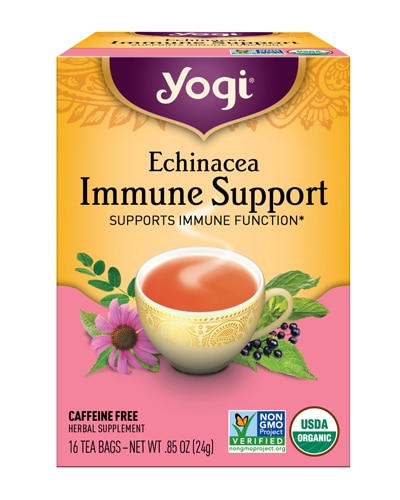While the
coronavirus pandemic has put vaccinations front and center, it doesn’t change the fact that getting a vaccine – for any disease – is a personal decision. It may require you to weigh the pros and cons, wrestle with ethical questions and have lengthy discussions with your healthcare providers. But if you ultimately plan on getting a vaccine, you should immediately start to prepare your body. What does that mean? Below is some specific vaccine info to support a
strong immune system and promote a calm mind. To protect your health, follow these steps before and after taking that shot.

What to do Before Getting a Vaccine
The good thing about vaccines is they’re quick and easy. You don’t have to fast the night before or drink some chalky potion. In fact, you may not even see a doctor or step foot in a doctor’s office. Of course, that doesn’t mean you should throw caution to the wind. Taking care of your health is imperative, especially when introducing your body to something new. Here are a few key steps to take before you get a vaccine.
Know your allergies.
If you have any known allergies or have had reactions to vaccines in the past, speak to your doctor first. Your healthcare provider will know if a particular vaccine could potentially cause a flare up. Hives, swelling at the injection site and wheezing are common signs of an allergic reaction. Sometimes, these symptoms are mild and go away on their own. But it’s smart to be cautious and ask questions beforehand in order to avoid any serious complications.
Get some shuteye.
There is a strong connection between
sleep and the immune system. Dr. Michael Breus, The Sleep Doctor, explains that circadian rhythms help program your immune system’s response to harmful pathogens. By maintaining consistent bedtimes and waketimes, you can keep your circadian rhythms in sync. This, in turn, promotes a normal functioning immune system.
Of course, the amount of sleep you get matters, too. Several studies have linked lack of sleep (less than six hours per night) with accelerated cellular aging, increased susceptibility to infections, chronic inflammation and a weakened adaptive immunity.
One
study from the International Journal of Behavioral Medicine even found an association between sleep duration and antibody responses. The 2020 study was conducted on 83 healthy young adults prior to them receiving the influenza vaccine. Their findings showed that shorter bouts of sleep on the two nights prior to vaccination resulted in fewer antibodies one and four months later. Whether there’s enough clout behind the claim or not, going to bed a little earlier certainly can’t hurt.
Fuel up.
Just the thought of a needle sends some people into a panic. This rush of anxiety can lead to dizziness or even fainting – symptoms that are exacerbated by low blood sugar and dehydration. On the day of your vaccine, eat well-balanced meals and take sips from your
water bottle every hour. At the very least, go to your appointment prepared. Take a carbohydrate-rich snack or glucose tablet to help treat lightheadedness. Most importantly, speak up! Inform the person administering the shot that you are uneasy with needles and have a tendency to faint.
Skip it if you’re really sick.
On its
pre-vaccination checklist for the COVID-19 vaccine, the Centers for Disease Control and Prevention (CDC) acknowledges there is no evidence that acute illness inhibits vaccine efficacy or increases your chances of having an adverse reaction. That means a mild headache or even an upper respiratory infection should not prevent you from getting the shot. The CDC does, however, recommend rescheduling the vaccine if you experience
moderate or severe illness. For example, a fever would most certainly warrant a delay. Not sure if your ailment is serious? Call your healthcare provider ahead of time, so they can help you decide whether to stay home or stick it out.
How to Protect Yourself After a Vaccine: 5 Factors to Consider
The efficacy of a vaccine is largely out of your hands and dependent on the science working. That doesn’t mean you should discount your lifestyle choices, though. What you do in the days following a vaccine can strongly influence your immune response. Focus on the following key factors, and you’ll have the best shot at staying healthy:
1. Sleep
Sleep continues to be a crucial component to a healthy immune system long after you’ve received a vaccine. Stay consistent with your sleep schedule to maintain those circadian rhythms. And make sure you’re getting more than six hours of sleep each night. If you’re struggling to shut down, practice
different types of yoga or meditation before bed and turn off all digital devices to help clear your head. Poor or insufficient sleep is a hard habit to break, but the benefits are well worth the effort.
2. Hydration
All vaccinations can cause a mild fever. Staying hydrated can help regulate your body temperature to prevent or treat a fever. If you do feel feverish (cue the clammy skin and cold sweats), make sure you’re taking the necessary
steps to prevent electrolyte imbalance. Low levels of essential minerals, including sodium and magnesium, can impair normal function of your organs, cells, muscles, nerves and other body tissues.
3. Sugar (fructose) intake
A high-fructose diet has long been connected to certain health conditions, such as obesity and type-2 diabetes. Now, it’s being linked to immune system impairment. According to a
2021 study published in
Nature Communications, consuming high amounts of fructose increases inflammation that harms immune cells, like monocytes and macrophages. This can interfere with your immune system’s ability to function properly. Right after getting vaccinated, you need your immune system operating optimally. One way to support a healthy immune system is to limit fructose intake.
Fructose is naturally found in many fruits and vegetables. Does that mean you should avoid produce? Of course not. Fruits and vegetables provide a variety of vitamins, minerals and phytochemicals, many of which
reduce the risk of inflammation. That said, some fresh foods are lower in fructose than others. Bananas, blueberries, carrots, avocados and green beans are considered low-fructose foods.
The sources of fructose you should be most concerned about are sweetened foods and beverages. If you’re not sure if something contains fructose, check the label. Fructose can be found under a number of aliases, including (but not limited to):
- Agave
- Coconut sugar
- High-fructose corn syrup
- Honey
- Maple-flavored syrup
- Molasses
- Palm sugar
- Sorghum
4. Movement
A sore arm might seem like a good reason to skip your regularly scheduled workout, but it’s quite the opposite. To reduce pain or discomfort at the injection site, keep exercising your arm. Movement increases blood flow, which promotes healing by ushering in fresh oxygen and other important nutrients. Should you perform at maximum effort? Probably not. You don’t want to create
more muscle soreness. Stick to light weights or
cardiovascular exercise to bounce back faster.
5. Follow through
You’re getting a vaccine to protect your health. But if you don’t get the full course of treatment, the vaccination can become null and void. Find out if you need a booster shot or a series of shots to complete immunization. Hepatitis B, for instance, is a series of three shots that requires four weeks between each dose. The timing of these boosters is important. Be sure you can keep up with the immunization schedule. Mark your calendars and make those appointments with your doctor ahead of time, if possible.




